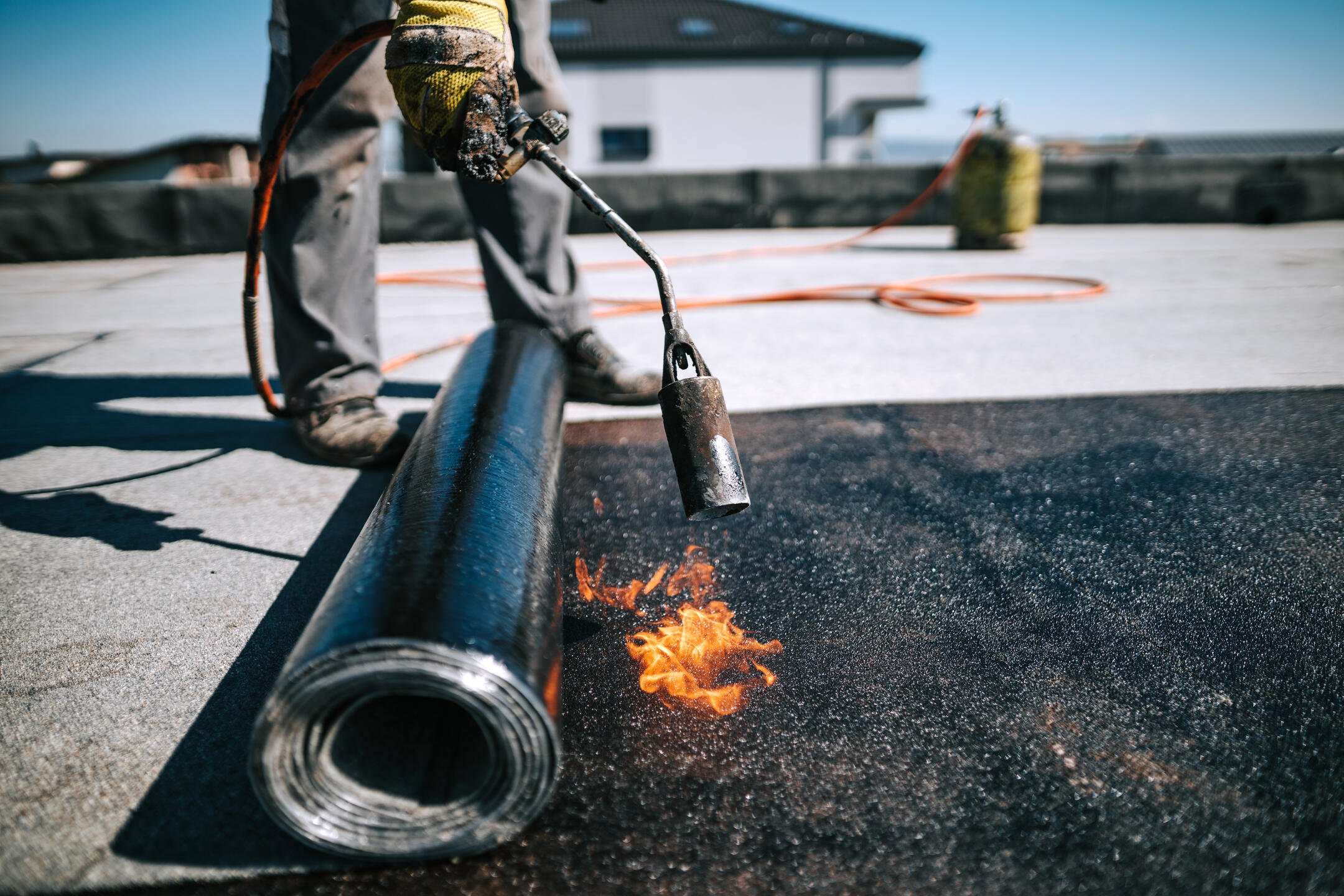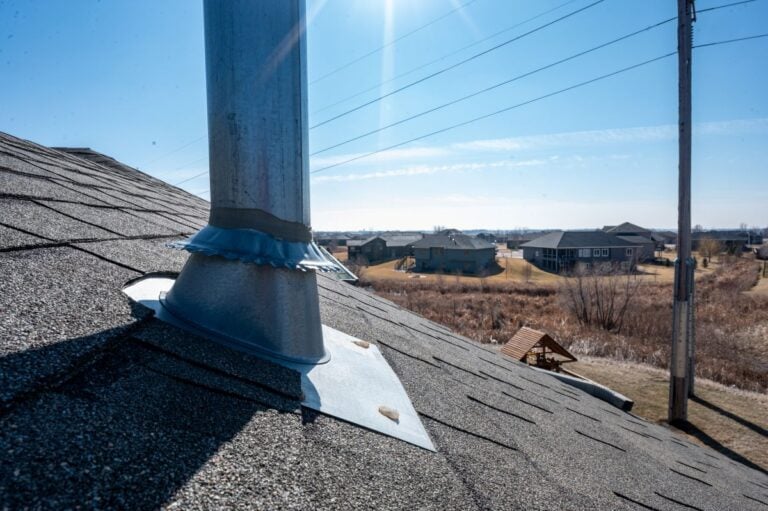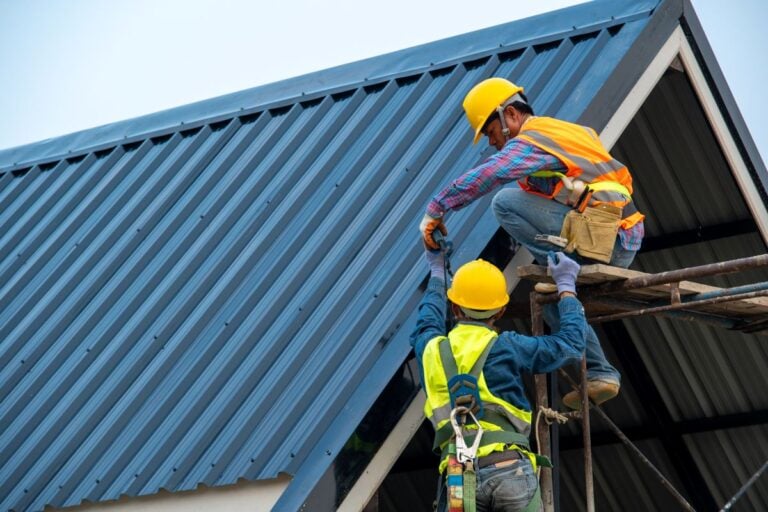When it comes to protecting a commercial property, the roof is your first line of defense. Among the many roofing options available, roof membranes stand out for their durability, weather resistance, and cost-effectiveness. But what exactly is a roof membrane, and why is it such a popular choice for commercial buildings? This guide will break it down for you. We’ll cover everything commercial property owners need to know about roof membranes, including:
- What a roof membrane is and how it works
- The 4 most common types of roof membranes and their unique advantages
- How to choose the right roof membrane for your property
🤔 What Is a Roof Membrane?
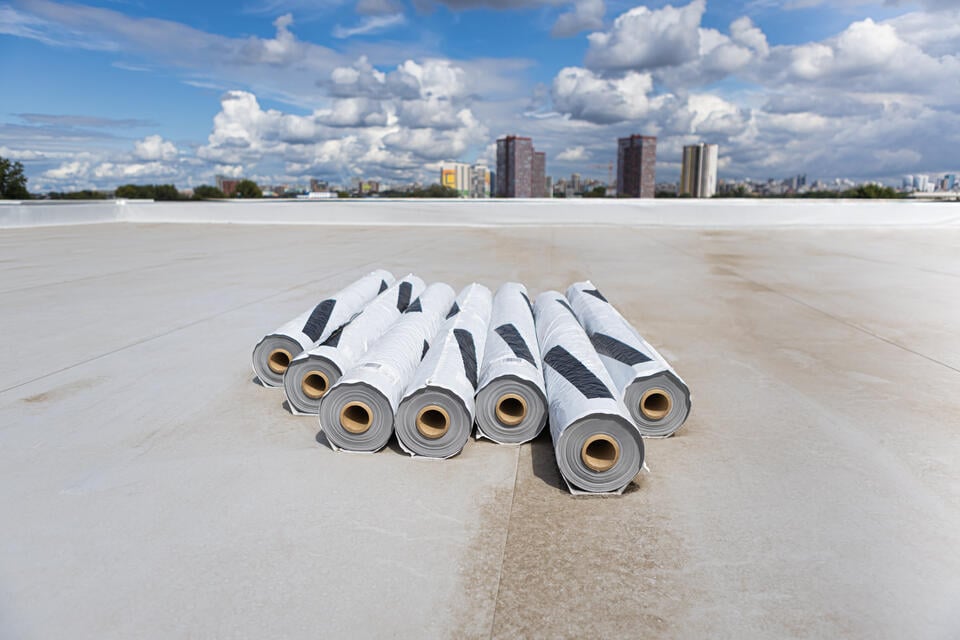
A roof membrane is a thin, continuous layer of material installed over the surface of a flat or low-sloped roof. Its main purpose is to provide a watertight barrier that keeps moisture and other elements out of your building. Roof membranes are commonly made from materials like synthetic rubber, thermoplastics, modified bitumen, or a combination of these.
These membranes are favored in commercial roofing because they’re lightweight, highly durable, and built to withstand various weather conditions, from heavy rainfall to extreme heat. They are especially effective in flat and low-slope roofing systems, where water drainage can be challenging with traditional roofing materials.
Reasons to Choose a Roof Membrane
If you’re a commercial property owner, investing in a roof membrane offers numerous benefits, including:
- Enhanced Weather Protection: Roof membranes are designed to seal out water and resist harsh environmental conditions, reducing the risk of leaks and structural damage.
- Cost-Effective Durability: Their long lifespan and minimal maintenance costs make roof membranes a budget-friendly option over time.
- Energy Efficiency: Certain roof membranes, like reflective PVC options, can help maintain cooler indoor temperatures, reducing energy costs for climate control.
- Flexibility and Versatility: Roof membranes are suitable for a variety of roof shapes, materials, and building types, making them an adaptable choice.
🏢 4 Common Types of Commercial Roof Membranes
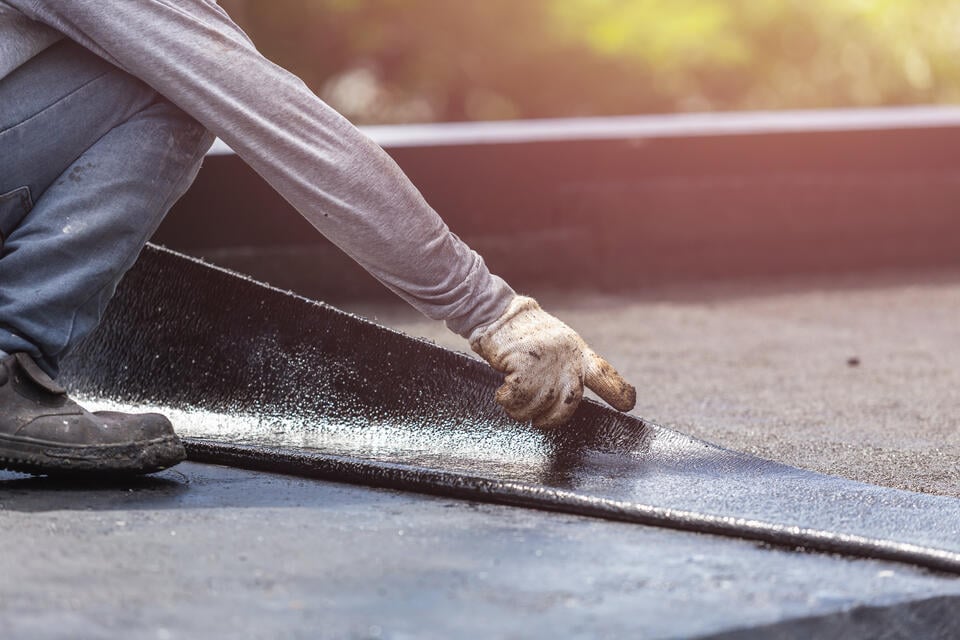
When it comes to choosing the right roof for your commercial property, not all roof membranes are created equal. Each type brings unique features and benefits designed to meet specific needs, whether it’s durability, energy efficiency, or cost-effectiveness. Below, we’ll explore the four most popular roof membrane types for commercial properties in greater detail to help you make an informed decision.
1. EPDM (Ethylene Propylene Diene Monomer)
EPDM is a synthetic rubber membrane that has been a trusted choice for commercial roofs for decades. Its ability to withstand extreme weather conditions makes it a reliable and long-lasting option.
Features:
- Highly resistant to UV rays, ozone, and extreme temperatures, ensuring the roof remains intact even in harsh climates.
- Its flexibility allows it to expand and contract with temperature fluctuations, reducing the risk of cracks or leaks.
- Available in black, which absorbs heat, or white, which reflects sunlight for energy efficiency, allowing property owners to customize their choice based on regional climate needs.
- EPDM roofs are relatively lightweight, reducing strain on the building’s structure.
Best For:
Property owners who want a cost-effective, low-maintenance roofing solution for flat or low-slope roofs. Its longevity and weather resistance make it ideal for climates with unpredictable or extreme weather patterns. Additionally, EPDM’s simple installation process can also help save on labor costs.
Drawbacks to Consider:
While EPDM is durable, it’s not as resistant to punctures or tears as some other materials, which means it may not be the best option for rooftops with heavy foot traffic or equipment installations.
2. PVC (Polyvinyl Chloride)
PVC membranes are a go-to choice for businesses that prioritize energy efficiency and sustainability. Known for their reflective properties, PVC roofs can significantly reduce the building’s energy consumption while providing excellent protection.
Features:
- Reflects solar heat effectively, reducing cooling costs and improving indoor comfort, especially in hot climates.
- Extremely resistant to fire, water, and chemicals, offering an added level of safety and durability.
- Reinforced with polyester or fiberglass, PVC membranes are built to handle stress and maintain structural integrity, even under challenging conditions.
- Welded seams create a watertight barrier, reducing the likelihood of leaks and water damage.
Best For:
Businesses looking to reduce their carbon footprint while maintaining a durable and energy-efficient roofing system. PVC is particularly advantageous for industrial facilities, warehouses, and buildings in warm, sunny regions where controlling cooling costs is a priority.
Drawbacks to Consider:
Though PVC offers many benefits, it tends to come with a higher upfront cost compared to other roofing materials. However, its long-term energy savings and durability often offset the initial expenses.
3. TPO (Thermoplastic Polyolefin)
TPO is a versatile roofing membrane that combines the best qualities of EPDM and PVC. It offers excellent durability, flexibility, and energy efficiency, making it a popular choice for a wide range of commercial properties.
Features:
- Heat-welded seams create a strong, seamless barrier that is highly resistant to leaks, making it a reliable option for long-term performance.
- Provides resistance against UV rays, punctures, and chemicals, ensuring the roof remains durable even in harsh environments.
- Available in white, gray, or tan, with highly reflective properties that help reduce heat absorption and lower cooling costs.
- Lightweight and easy to install, TPO minimizes stress on the building’s structure while speeding up the roofing process.
Best For:
Properties in sunny or warm regions that require a balance of durability and energy efficiency. TPO is ideal for commercial buildings that want a long-lasting, eco-friendly roofing solution without the premium cost of PVC.
Drawbacks to Consider:
While TPO is a strong and cost-effective option, its quality can vary depending on the manufacturer. It’s important to ensure the material meets high industry standards for long-term reliability.
4. Modified Bitumen
Modified bitumen is an asphalt-based roofing membrane designed for durability and strength. It’s a great choice for buildings that experience heavy foot traffic or require added reinforcement to handle rooftop equipment.
Features:
- Reinforced with fiberglass or polyester, providing excellent tear resistance and making it suitable for building roofs that need to support extra weight or frequent foot traffic.
- Engineered to handle temperature extremes, modified bitumen roofs remain flexible in cold weather, reducing the risk of cracking or splitting.
- Offers multiple installation options, including torch-applied, cold-applied adhesive, or self-adhesive methods, allowing property owners to choose the best solution for their needs.
- Provides strong waterproofing capabilities, minimizing the risk of leaks or water damage over time.
Best For:
Flat or low-slope roofs requiring extra durability and reinforcement. Modified bitumen is especially suitable for commercial properties with rooftop access, such as apartment buildings, offices, or industrial facilities that need to accommodate equipment or regular maintenance activities.
Drawbacks to Consider:
Modified bitumen may lack the energy efficiency of reflective membranes like TPO or PVC. Additionally, some installation methods, such as torch-applied systems, require experienced professionals to ensure proper application.
👉 How to Choose the Right Roof Membrane for Your Property

When selecting a roof membrane for your building, it’s important to evaluate your specific needs. Here’s a breakdown of key factors to consider:
Climate
Your local climate plays a major role in determining the best membrane. TPO and PVC are ideal for warm, sunny areas because their reflective surfaces help keep buildings cooler. On the other hand, EPDM is better suited for colder climates, as it’s highly resistant to freezing temperatures and harsh weather conditions.
Roof Traffic
If your roof will be accessed frequently for tasks like HVAC maintenance or inspections, durability is a must. Modified bitumen membranes are designed to handle heavy foot traffic without compromising their integrity, making them a reliable choice for busy rooftops.
Energy Efficiency Goals
Looking to cut down on energy costs? Reflective membranes such as PVC and TPO are designed to reduce heat absorption, keeping your building cooler and lowering air conditioning bills. This makes them a smart option for businesses prioritizing sustainability and efficiency.
Budget
Roof membranes vary widely in cost, both in terms of installation and maintenance. While some options may have a higher upfront cost, they can save money in the long run due to durability or energy savings. Consult a professional roofing contractor to determine the best choice within your budget.
🙌 Protect Your Property with the Perfect Roof
At Palladium Roofing, we understand that choosing the right roof membrane is a significant decision for your property’s longevity and protection. Our experienced team is here to guide you through the selection process, considering factors such as climate, roof traffic, energy efficiency goals, and budget. With our expertise and commitment to quality, you can trust us to recommend the most suitable roof membrane that meets your unique needs.
Don’t compromise on the integrity of your roof. Contact Palladium Roofing today for a consultation and discover why countless customers have chosen us as their trusted roofing partner. Let us safeguard your roof and provide you with peace of mind for years to come.


